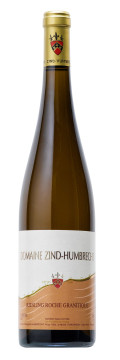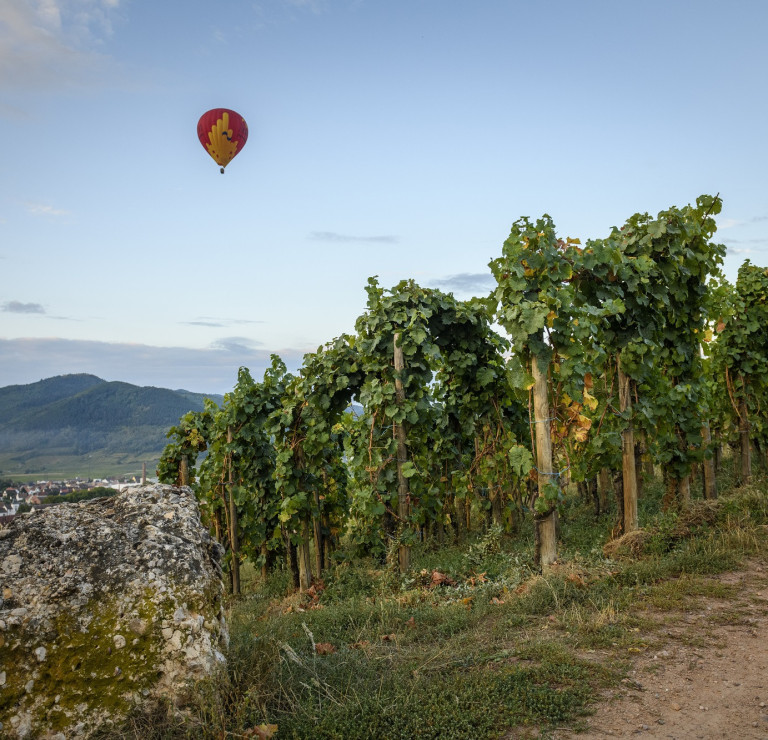
Technical presentation
| Bottling : | January 2020 |
|---|---|
| Acquired alcohol : | 12,7° |
| Residual sugar : | 3.3 g/l |
| Total acidity : | 3.8 g/l H2SO4 / (5.8g/l Tartrique) |
| pH : | 3.10 |
| Yield : | 69 hl/ha |
| Optimum tasting : | 2022-2031 |
| Average age of vines : | 36 years |
| Terroir : | Grand Cru Brand |
| Sweetness index : | 1 |
| Soil : | Granite biotite |
Description of the wine Riesling Roche Granitique 2018
This wine is in fact the ‘second’ wine of our Grand Cru Brand, produced by the youngest vines there. Youngest, yes, at 36 years old average, because the oldest vines are much older and do produce a very different wine! In 2018, we also added the very small production of the young vines of the Sommerberg Grand Cru that was planted in 2013. I didn’t change the average age of the vines becomes it represented less than 10% of the total volume. Mea Culpa! These granitic vineyard enjoy some of the most precocious, warm, sun drenched situation in Alsace, and are growing on very poor sandy soil that looks very dry when there is no regular rain. Despite that, the vines were beautifully green throughout summer. That can be explained by the possibility these vines have to grow deeper root system and then find finer elements (clay originating from the black mica) and some humidity. In 2018, the grapes ripened quickly and reached a perfect balance, it wasn’t easy for the vines, but the stress was under control. The 2018 wine fermented very slowly but kept a steady pace and finished dry.

Tasting notes
04/2020 : Bright intense yellow colour. The nose is overall open and engaging. However, some aeration will show that it is in fact still marked by the full lees contact for 18 months and becomes even more aromatic and intense, developing fruity aromas, aromatic herbs… Most people believe that Riesling on granite should make austere type of wine. This is not my experience on granite. When the grapes are fully ripen like here, the wines become generous and flavourful with a very typical intensity. The palate shows weight and length, with a dry harmonious finish. The acidity is well present but mostly hiding behind the generous nature of the wine and, as often found on our wine, some tannins originating from the long gentle pressing cycle.

The Brand Grand Cru of Turckheim
In the Brand, this variety acquires finesse and elegance (floral and fruit aromas) without ever becoming coarse or too heavy. The Brand always surprises by the precocity of its wines, but whilst expressive young they also have a great ability to age. The nature of this terroir makes it easy to obtain an optimal ripeness whilst retaining a fine acidity